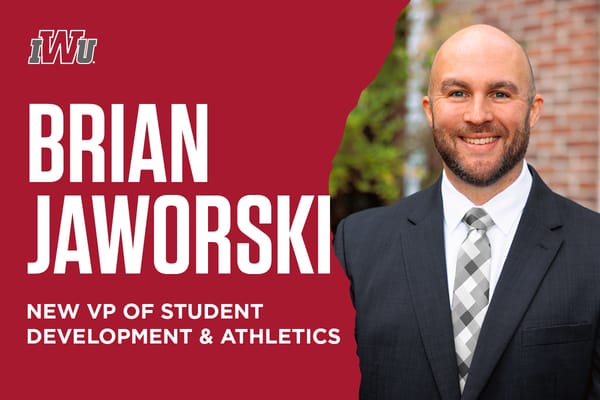What is the Five Fold Ministry?
The Fivefold Ministry—apostles, prophets, evangelists, pastors, and teachers—represents spiritual gifts designed to equip, mature, and unify the church. Rooted in Ephesians 4 and Wesleyan theology, these roles foster growth, service, and Christlike leadership today.

The Fivefold Ministry outlines a divinely ordained structure for church leadership: apostles, prophets, evangelists, pastors, and teachers. These five ministries are not merely titles or offices—they are expressions of spiritual gifts that God created for the body of Christ, given through the Holy Spirit to equip, mature, and unify the local church.
Biblical Foundations and Wesleyan Understanding
The Fivefold Ministry emerges from the teachings of the apostle Paul. In Ephesians 4:11–13, Paul explains to the early church that Christ Himself gave these roles “to equip His people for works of service” so the church might “reach unity in the faith.”
In the Wesleyan tradition, spiritual gifts are understood as ongoing expressions of the Holy Spirit’s work in the lives of believers. These gifts are given not for personal status, but to build up the local body of Christ through service, humility, and love. Their use must be grounded in Scripture, practiced with maturity, and shaped by a life of sanctification—core principles of Wesleyan holiness theology.
The Fivefold Ministry as Spiritual Gift Expression
The fivefold ministry gifts represent five distinct leadership roles—apostle, prophet, evangelist, pastor, and teacher. These are spiritual gifts of the heart, designed to develop, equip, and multiply the church. These are not honorary titles or institutional ranks, but callings bestowed by the Holy Spirit to prepare God’s people for works of service and to bring the church to maturity and unity in faith.
In the context of church leadership, these roles offer a dynamic framework through which the entire church can flourish. When recognized and nurtured properly, each role contributes uniquely to the spiritual development and health of the congregation.
Apostles: Missional Architects of Church Growth
Apostles are sent leaders who initiate new expressions of the gospel and build missional networks. They carry a vision for multiplication and transformation, often functioning as spiritual strategists who strengthen the church body across various contexts. Apostolic ministry is marked by innovation, alignment with God’s heart, and deep commitment to advancing God’s kingdom. Apostles are foundational to helping other gifts emerge and flourish. Today, apostles often serve as missionaries, church planters, or ministry pioneers—those called to launch new works, establish faith communities, and equip leaders across diverse contexts.
Prophets: Communicators of God’s Will
Prophets are spiritually gifted individuals who discern and declare God’s Word to the body of Christ, calling the local church to greater faithfulness and holiness. Unlike the caricature of angry pundits or digital provocateurs, true prophetic voices are marked by a posture of brokenhearted love—combining deep anguish over sin with a resilient hope in God’s kingdom. Authentic prophetic ministry reflects both lament and joy: prophets weep for what is broken and envision what could be redeemed. This emotional integrity distinguishes them from those who confuse shrillness with boldness. In the tradition of Jeremiah and Jesus Christ, prophets grieve before they confront, and their authority flows from compassion, not volume. Within the broader framework of spiritual gifts, their purpose is not to divide but to awaken, encouraging the church today to return to truth, justice, and healing through the power of the Holy Spirit.
Evangelists: Proclaimers of the Gospel
Evangelists possess a unique passion for reaching those outside the church. Evangelists are ordained ministers who devote time to traveling and preaching the gospel. They are driven to proclaim the good news of Jesus Christ, often sparking revival and drawing new believers into the community of faith. Evangelists not only share the gospel widely but also equip others to do the same. Their presence often energizes outreach, discipleship, and relational connections beyond the church walls.
Whether in person or online, evangelists remain a vital part of helping the church grow through Spirit-led proclamation and engagement with the world.
Pastors: Shepherds of Spiritual Formation
Pastors guide, nurture, and protect the church body, providing consistent care for the spiritual, emotional, and relational needs of their congregations. They walk closely with individuals and communities, offering biblical instruction and encouragement, counseling, and prayer as they prepare God's people for deeper faith in Jesus Christ. Rooted in compassion and grounded in God’s Word, pastoral ministry reflects Christ’s love and tenderness.
In today’s context, pastors serve in diverse ways—from traditional pulpits to hospital chaplaincies, from rural parishes to urban multisite campuses. Some are full-time leaders, while others serve bivocationally, shepherding while working in other sectors.
Teachers: Instructors in Biblical Truth
Teachers are essential, providing sound biblical instruction that equips the church body for faithful living. They interpret both the Old Testament and New Testament, helping believers understand God’s Word and apply it with clarity and conviction.
By teaching doctrine, clarifying truth, and encouraging discernment, teachers help prepare God’s people for ministry and spiritual growth. In the church today, their work strengthens the foundation of faith and supports the development of other spiritual gifts.
Together, these fivefold ministry gifts form a unified leadership model designed to reflect the fullness of Christ Jesus in the church today. When properly stewarded, they activate other spiritual gifts, cultivate spiritual depth, and empower the five fold ministers to lead with humility, clarity, and purpose.
Spiritual Gifts vs. Fivefold Ministry Gifts
According to 1 Corinthians 12:4–10 and Romans 12:6–8, every believer receives spiritual gifts such as prophecy, serving, teaching, encouraging, giving, leading, and showing mercy. These gifts are given by the Holy Spirit and are meant to strengthen the church body. All believers are empowered to grow in grace and faithfully steward the gifts they’ve been given for the good of the church today.
However, while every believer has one or more spiritual gifts, not all are called to devote their lives to vocational ministry. The fivefold ministry gifts are specific callings given to some to prepare God’s people and equip the broader church. These leadership roles are part of God’s design to help the church grow in unity, maturity, and mission. In contrast, spiritual gifts like mercy, hospitality, healing, and administration are broadly distributed across the body of Christ to meet a wide range of ministry needs within the local church.
The Fivefold Ministry in the Church Today
In a time when many in church leadership feel overextended, the Fivefold Ministry offers a biblical model for restoring balance by distributing responsibility and celebrating diverse spiritual gifts. Rather than relying on a single leader, this model encourages shared ministry functions that contribute to the health and growth of the church body.
When recognized and nurtured, each of the five fold ministry gifts brings a unique strength: apostles provide vision and strategic direction, prophets offer spiritual discernment and encouragement, evangelists proclaim the gospel and invite others into faith, pastors shepherd and care for the community, and teachers offer biblical instruction and theological grounding. Together, these gifts help the church grow in unity, maturity, and missional purpose.
Challenges and Considerations
While the Fivefold Ministry model has gained popularity in some charismatic movements, the Wesleyan Church emphasizes leadership that is rooted in accountability, scriptural grounding, and humility. Titles such as apostle or prophet may be used in certain circles today, but the elevation of these roles beyond what the Bible teaches is not supported within Wesleyan doctrine or governance.
To protect the integrity of the church today, it is essential that all ministry roles be exercised in submission to Scripture, discerned in community, and modeled after the servant-hearted example of Christ Jesus. When practiced with sound theology, spiritual maturity, and a commitment to equipping others, the fivefold ministry gifts can contribute meaningfully to the health and mission of the body of Christ—without becoming a source of imbalance, personal ambition, or confusion.
Prepare for Ministry at Indiana Wesleyan University
Do you sense a call to ministry or desire to explore your unique role in the body of Christ? At Indiana Wesleyan University, We don’t just prepare students for ministry—we help them understand the gifts God has given them and how to use them to serve the church and the world with grace, wisdom, and clarity. Our programs in Christian ministry, church leadership, and theology are designed to help students discover and develop their spiritual gifts. Explore ministry degrees today!




